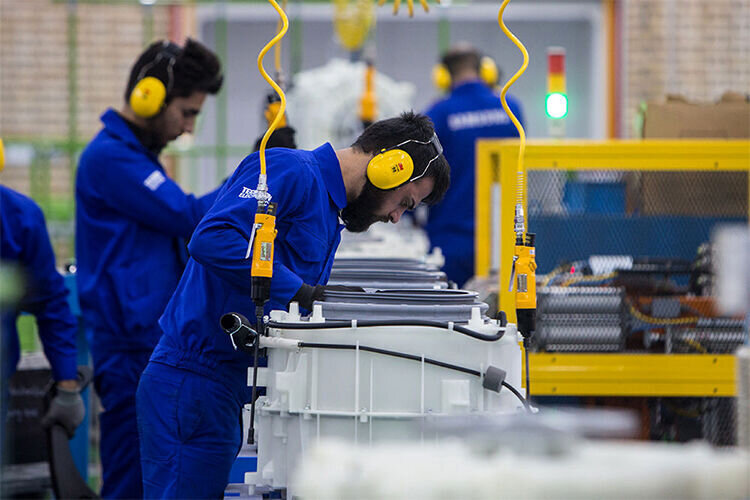‘Iranian industry withstands 12-day assault, swift support for affected factories urgent’

TEHRAN – The secretary-general of Iran’s House of Industry, Mine and Trade said the country’s industrial sector held its ground during the recent 12-day Israeli assault, maintaining production and preventing shortages across supply and distribution chains. He called for urgent support for factories and workers affected by the attacks.
Speaking to IRNA, Arman Khaleghi praised industrial producers for their resilience, comparing their commitment to that of the wartime years. “Despite several industrial zones being targeted, production never came to a halt,” he said.
Khaleghi highlighted that during the conflict, the entire food and processing industries continued operations without interruption—from manufacturing to distribution—ensuring no disruption in the supply of essential goods. He said that even the logistics sector accelerated its delivery efforts during this period.
“There was no pause in the production of essential goods,” he stated. “Basic commodities—from dairy to cooking oil—were quickly supplied with the help of relevant authorities and made available to the public.”
Khaleghi emphasized that although the immediate danger has passed, factories damaged in the attacks must receive government support, and their workers should be swiftly reinstated.
He explained that while some production units were temporarily shut down due to sabotage risks, those that sustained damage now require both financial assistance and policy intervention. “The disruptions came in late June,” he noted, “and the industry is in dire need of compensatory and supportive policies.”
The business leader expressed hope that by July 1—marked as Industry and Mining Day in Iran—a comprehensive aid package would be provided to industrial players to help revive the production cycle.
Khaleghi added that the House of Industry and Mine has already submitted proposals to the president, parliament committees, relevant ministries, and other responsible bodies. “We hope these suggestions are acted upon swiftly,” he said.
The proposed support package includes bank debt deferrals, waivers of banking penalties, tax settlement delays, and deferred social security payments. “A grace period is necessary to give industrial units room to recover, and the government must step in to support production,” he stressed.
Khaleghi also praised the government for accelerating customs clearance procedures during the 12-day conflict. “Faster unloading of goods from customs and ports allowed key raw materials to reach factories more quickly, helping sustain production.”
Meanwhile, Iran’s deputy industry, mining and trade minister for the commercial affairs said on Saturday (June 28): “Following the request of the minister of industry, mining and trade, a comprehensive package of support for industries affected by the Israeli-imposed war has been sent to the cabinet, and if approved, we will announce the details to production and industrial units.”
In an exclusive interview with IRNA's economic correspondent, Mohammad Sadeq Mofatteh presented a report on the status of units damaged in the imposed war by the brutal Israeli regime and stated: "This package includes banking facilities, tax discounts, and insurance support, which will soon be announced to support the country's production units after approval by the government."
He said this package seeks to enable affected manufacturing and industrial units to benefit from a higher foreign currency quota, the opportunity to repay bank installments, and bank facilities with low interest rates.
Stating that expert work has been carried out on a comprehensive package to support the affected industries, the official said: "Experts have presented expert measures with a report on the number of affected units, the extent of damage, and strategies for covering the damage, which will be announced after approval by the cabinet."
Mofatteh went on to say that the minister of industry, mining and trade, along with his deputies, recently visited several units damaged during the attack by the aggressive Zionist regime and was closely informed about their situation.
Pointing out that the damaged production units will soon return to the production cycle, the deputy minister said that the minister of industry, mining and trade has emphasized the need to support the damaged private sector production units for reconstruction, providing their equipment and needs in cooperation with the relevant ministries and responsible agencies so that production is not interrupted.
He emphasized that the government is with the private sector in these difficult circumstances and will support these units.
EF/MA
